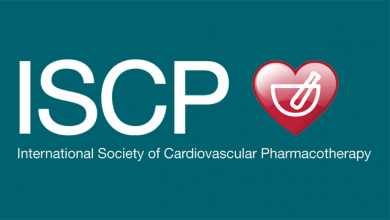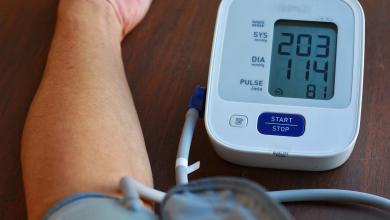Search results
Author(s):
Roland Asmar
Added:
3 years ago
The greatest burden of cardiovascular disease (CVD) is due to non-fatal morbidity and its consequences; whereas CVD accounts for approximately 17 million deaths each year worldwide, current estimates indicate that CVD associated with asymptomatic disease and target organ damage as a result of undetected cardiovascular risk factors affects 128 million people worldwide.1,2 Moreover, the worldwide…
View more
Author(s):
Balram Sharma
,
Hanmant Barkate
,
Sachin Suryawanshi
,
et al
Added:
2 years ago
The TALENT Study
Author(s):
Giuseppe Mancia
Added:
3 years ago
Article
A Review of Angiotensin Receptor Blocker-based Therapies at all Levels of Cardiovascular Risk
Author(s):
Giuliano Tocci
,
Lorenzo Castello
,
Massimo Volpe
Added:
3 years ago
Article
Author(s):
Peter M Nilsson
Added:
3 years ago
Patients with type 2 diabetes have a well-documented increased risk for cardiovascular disease (CVD) that is more than two to three times higher than the risk seen in non-diabetic subjects.1 In spite of modern methods to treat diabetes and its complications, the increased risk is still substantial even if data on risk factor controls in national surveys have shown improving trends for blood…
View more
Author(s):
Massimo Volpe
,
Giuliano Tocci
,
Francesca Giovannelli
Added:
3 years ago
Cerebrovascular accidents are one of the leading causes of morbidity and mortality worldwide. The World Health Organization (WHO) found that in 1990 stroke accounted for 4.3 million mortalities, the third most common cause of death worldwide. Projecting forward to 2020, the incidence of stroke-related death is expected to rise to 7.7 million per year.
High blood pressure is one of the most…
View more
Author(s):
Zengwu Wang
,
Tom Richart
,
Yu Jin
,
et al
Added:
3 years ago
Stroke is the second most common cause of mortality worldwide.1 Cerebrovascular disease caused an estimated 5.7 million deaths in 2005, with 87% occurring in low- or middle-income countries.2 Without intervention, the global number of stroke deaths will rise to 6.5 million in 2015 and 7.8 million in 2030.2 Blood pressure is the most consistent and powerful predictor of stroke. Hypertension…
View more
Author(s):
Alejandro de la Sierra
Added:
3 years ago
The Concepts of Metabolic Syndrome and Cardiometabolic Risk
Cardiometabolic risk represents a situation where the possibilities of developing atherosclerotic cardiovascular disease and diabetes are significantly enhanced as a consequence of the presence of insulin resistance and atherogenic dyslipidaemia. Dyslipidaemia is characterised by the presence of low high-density lipoprotein (HDL)…
View more
Author(s):
Olivier Phan
,
Michel Burnier
,
Grégoire Wuerzner
Added:
3 years ago
Chronic kidney disease (CKD) is characterised by progressive nephron loss leading to increased intraglomerular pressure, glomerular permeability, proteinuria and systemic hypertension. The prevalence of CKD defined as estimated glomerular filtration rate (eGFR) of <60 mL/min per 1.73 m2 ranges from 2 to 12 % in Europe and in the US.1,2 CKD is an independent risk factor for the development of…
View more
Author(s):
Domenic A Sica
Added:
3 years ago
Introduction
Diabetes mellitus is rapidly increasing in its worldwide prevalence and is currently estimated to affect 7-8% of the US population.1 In 2005, 1.5 million new cases of diabetes were diagnosed in people aged 20 years or older in the US. In the not-so- distant past, type-2 diabetes mellitus was viewed as a seemingly benign condition, at least in the elderly, with little effect on life…
View more













